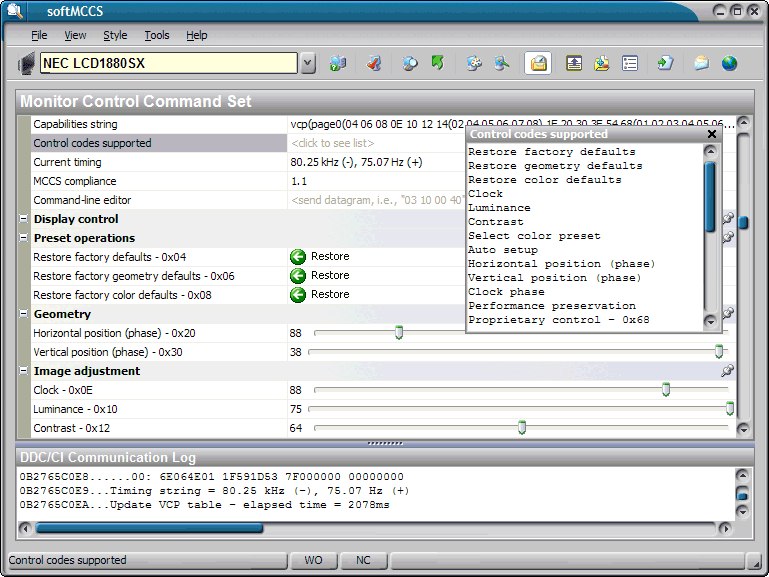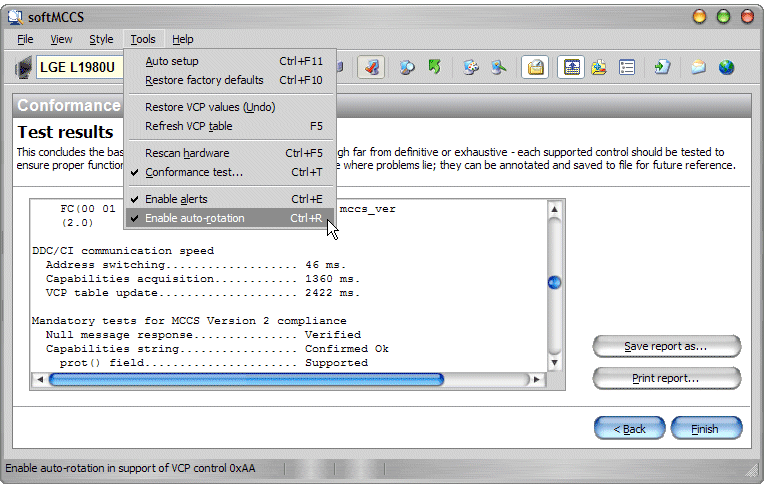|
Version: 2.5
Released: 23 July 2023
File size: 1.5 MB
Designed to work with display devices from our partners, softMCCS supports the DDC/CI protocol: it can communicate via any host-side graphics
controller from AMD, Intel and NVidia, as well as legacy controllers from 3dfx, 3dlabs, ATI, C&T, Cirrus Logic,
Matrox, NeoMagic, Number Nine, Rendition, S3, Silicon
Motion, SiS, Trident, VIA, VideoLogic, or XGI - over VGA, DVI, HDMI, DisplayLink or DisplayPort interfaces.
 MultiRes MultiRes
 mControl mControl
 iRotate iRotate
 Monitor
Asset Manager Monitor
Asset Manager
 Legacy
software Legacy
software
|
|
 |
| softMCCS |
  |
Aiding the development of software controllable
displays
softMCCS is a purpose-built diagnostics and compliance
application, providing communication through the widest variety
of GPUs and compatibility with all x86 and x64 versions of Windows, from
the original retail release of Windows 95 onwards.

How it works
After establishing effective communication, softMCCS
reads each connected display's EDID and MCCS capabilities
strings. Within seconds softMCCS presents categorized
information, current status and supported controls for each
connected display in an easily-recognizable, property sheet
metaphor. Beyond it's ability to simultaneously report the
status of over 150 VCP code locations in a tested display,
softMCCS also provides full control over each supported
command and allows individual datagrams to be sent over the
DDC/CI channel while viewing raw traffic in an ongoing log
window. The speed of the underlying engine even makes it possible for softMCCS to react,
in real-time, to events such as hot-plugging, changes to a
tested display's orientation (portrait or landscape), and
to synchronize with the use of a tested display's conventional
OSD.
Conformance testing made simple
softMCCS also provides a step-by-step wizard to
ease compliance testing and generate useful reports for
later analysis, verification or improvement of the display's
performance. It is the ultimate tool for hardware designers,
firmware engineers and other industry professionals involved
in the creation of a new class of controllable
computer displays based on the VESA DDC/CI and MCCS standards.

|
|
|



